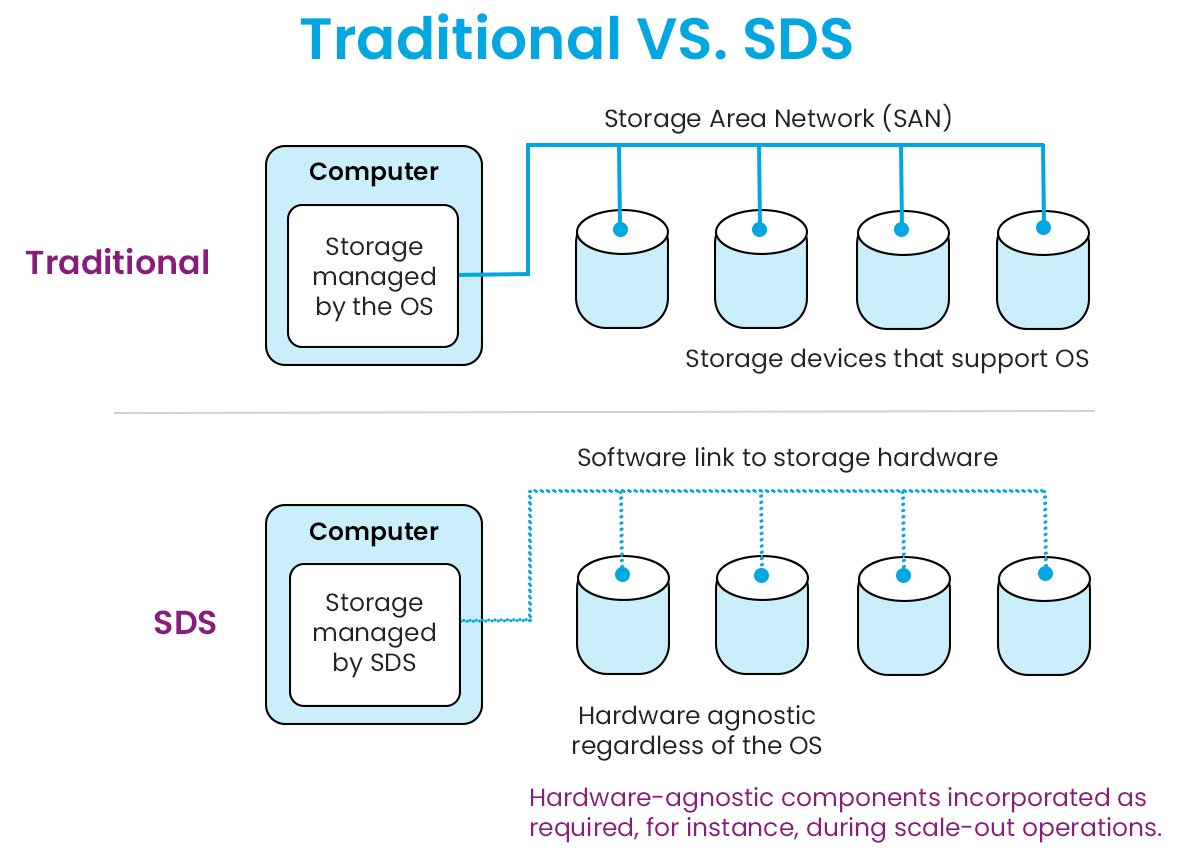Software-Defined Storage (SDS) is an emerging storage technology that abstracts storage management from physical hardware, enabling flexibility, scalability, and cost efficiency by controlling storage resources through software rather than hardware constraints.
Key advantages of SDS include:
-
Flexibility and Scalability: SDS dynamically allocates storage resources based on demand, allowing organizations to scale storage up or down without hardware changes. This supports rapid adaptation to changing workloads or data growth.
-
Cost Efficiency: By decoupling software from hardware, SDS enables the use of commodity hardware instead of expensive proprietary systems, reducing capital and operational expenses.
-
Improved Data Management: Centralized management and automation streamline provisioning, workload balancing, and monitoring, enhancing operational efficiency and agility.
-
Enhanced Data Security and Protection: SDS supports advanced security features such as encryption (at rest and in transit), role-based access controls, real-time monitoring, snapshots, replication, and backup integration, improving data resilience and compliance.
-
Device-Agnostic Infrastructure: SDS can operate across heterogeneous hardware, allowing organizations to mix and match storage devices without compatibility concerns, facilitating easier hardware upgrades and expansion.
Regarding Cloud Integration, SDS complements cloud storage by enabling seamless management of on-premises and cloud storage resources. Cloud storage options include block, file, and object storage, as well as virtualized storage types for Infrastructure as a Service (IaaS) and Platform as a Service (PaaS). Cloud providers typically offer data replication features for durability and high availability, including geo-redundant storage that replicates data across multiple geographic locations to ensure business continuity during disruptions.
Integrating SDS with cloud environments allows organizations to:
-
Automate data placement and movement between on-premises and cloud storage based on policies and performance needs.
-
Leverage cloud scalability and elasticity while maintaining control over data security and compliance.
-
Implement hybrid storage architectures that optimize cost and performance by balancing local and cloud resources.
In summary, Software-Defined Storage combined with cloud integration offers a modern, flexible, and secure approach to managing growing and diverse data storage needs, enabling organizations to optimize costs, improve data protection, and scale efficiently across hybrid environments.




















Maple Ranking offers the highest quality website traffic services in Canada. We provide a variety of traffic services for our clients, including website traffic, desktop traffic, mobile traffic, Google traffic, search traffic, eCommerce traffic, YouTube traffic, and TikTok traffic. Our website boasts a 100% customer satisfaction rate, so you can confidently purchase large amounts of SEO traffic online. For just 720 PHP per month, you can immediately increase website traffic, improve SEO performance, and boost sales!
Having trouble choosing a traffic package? Contact us, and our staff will assist you.
Free consultation